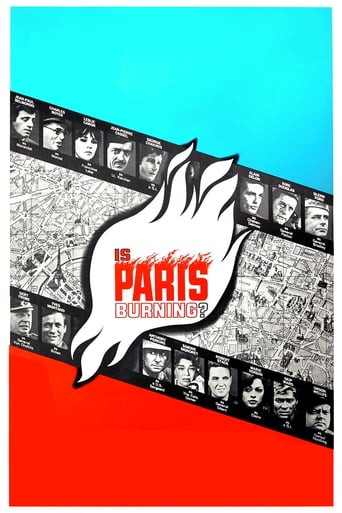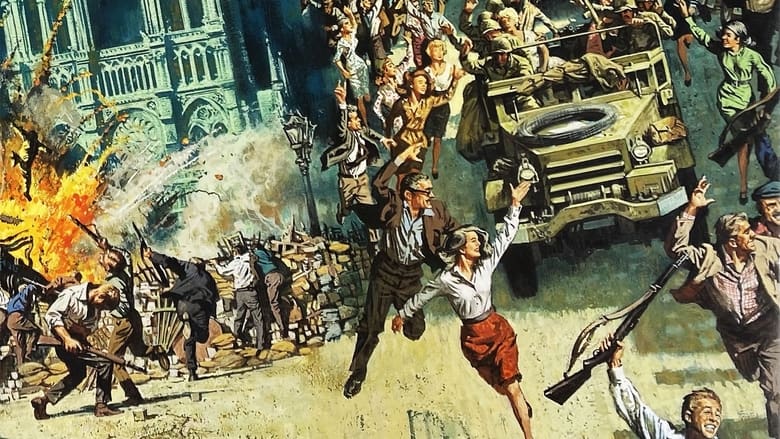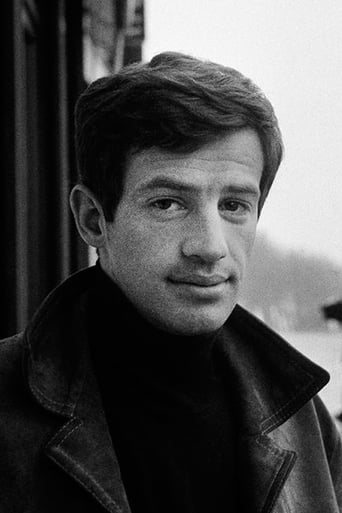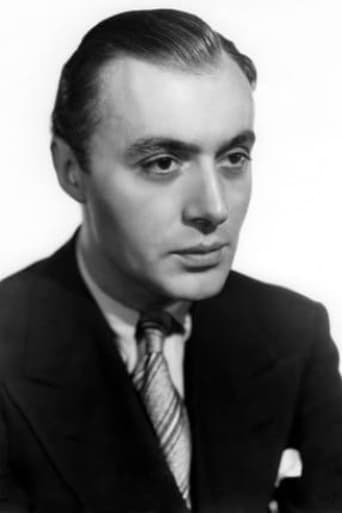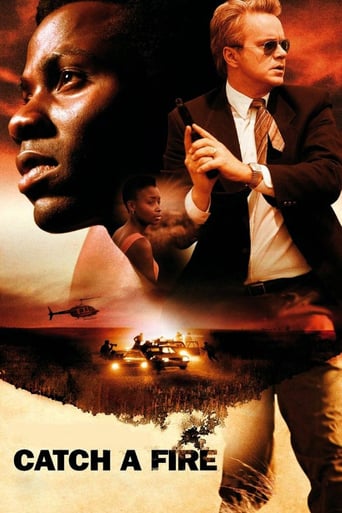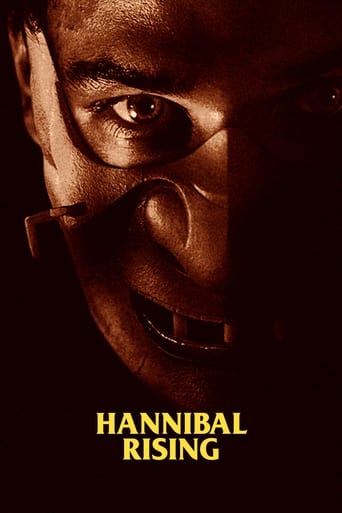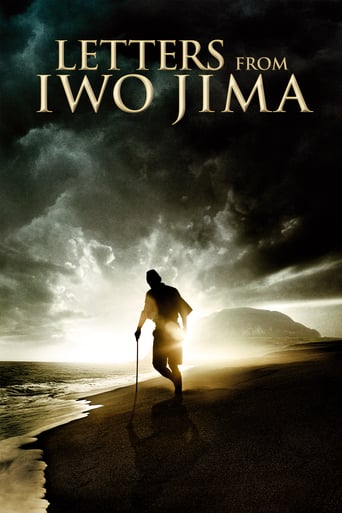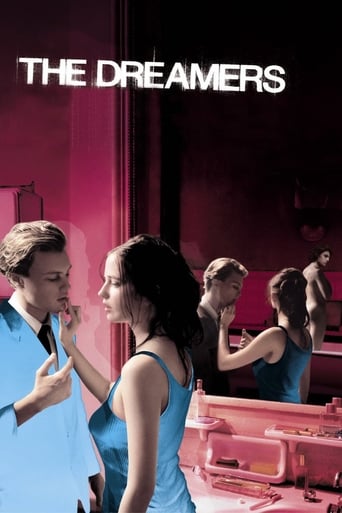Is Paris Burning? (1966)
Near the end of World War II, Gen. Dietrich von Choltitz receives orders to burn down Paris if it becomes clear the Allies are going to invade, or if he cannot maintain control of the city. After much contemplation Choltitz decides to ignore his orders, enraging the Germans and giving hope to various resistance factions that the city will be liberated. Choltitz, along with Swedish diplomat Raoul Nordling, helps a resistance leader organize his forces.
Watch Trailer
Cast


Similar titles
Reviews
For better or worse War and Art are linked inextricably. The first wave of novels about the second world war emerged in the closing stages and in the immediate post-war years and with the exception of Irwin Shaw's The Young Lions (arguably the finest because it spans the entire war in Europe and North Africa) they tended to cover small theatres and/or the fringes (Mr. Roberts, The Caine Mutiny)with one, From Here To Eternity, set largely in a peace-time Schofield Barracks and climaxing with the Japanese air attack on Pearl Harbor. Virtually all these novels were filmed in the 1950s, the first full decade of world peace but by the 1960s a new trend appeared, the Blockbuster Second World War Epic consisting of a broad canvas chock-full of blink-and-you'll-miss-them stars from Hollywood and Europe. The Longest Day kicked things off in 1962 and four years later Rene Clement weighed in with this entry on the liberation of Paris. Clement had made one of the first films about the second world war with Bataille du rail and gone on to distinguish himself with tiles likes Jeux Interdit so was an acceptable choice to make a film about ending the darkness in the City Of Light. Yes, it's uneven, yes, it's ponderous, yes, it's turgid in parts but it is a fairly accurate record of how it was and the street fighting skirmishes are highly effective. You may not want to revisit it but you will, or should, want to see it once.
Made 20 years after the end of the second world war possibly in an attempt to expiate their sense of guilt "Paris - Brule -t'il?" presents a Franco - centric view of La Liberation that might lead the unwary viewer to think that although it was nice of the Yanks to turn up,the French could have done it all themselves,merci beaucoup.Er,would that be those same heroes who surrendered ignominiously four years earlier leaving the Brits to fight the war on their own until Pearl Harbour?The same heroes who set up a pro - Nazi government in their own capital city?"Yes" is the word you're looking for. Having got that straight let's get on to the much - vaunted "Resistance". In the immediate post - war years half the population claimed to have been involved in a united effort to send the Hun packing,but of course had that actually been so,the country would have very quickly become ungovernable and the Germans would have either had to move out or bring in huge amounts of men and machines from other theatres of operation to impose their rule.As this didn't happen one can only assume that membership of the Resistance after the war increased in inverse proportion to German membership of the Nazi party. Victory does indeed have many fathers. In reality the Resistance was composed - certainly in its early manifestation - of different political groups each with its own agenda. It was also riddled with informers,collaborators and downright crooks. Only when the S.O.E. became actively involved did it become an effective force.Valiant though some of its members were,it was too fragmented to be anything more than a slight nuisance to the Germans. After the Normandy landings when it became clear that the initiative had swung towards the Allies,more and more French ceased to cooperate with the Boches,seeing which way the wind was blowing. The movie "Charlotte Gray" despite its faults will give you a truer picture of the efficiency of the partisans and the ambivalence of the French towards Les Anglais. The hero of this movie is General Frohlich (Herr Gert Frobe),a pragmatist with an eye to history who defied Hitler's order to destroy Paris in the face of the Allies' advance.By brokering a deal with the partisans and the Americans he assured the survival of his troops,and,incidentally,guaranteed that one of Europe's most beautiful cities would remain intact.For this intelligent,compassionate act he was ostracised by his countrymen which says more about them than it does about him. There are lots of cameo roles for American actors that were probably demanded by Fox.They add nothing to the movie,merely distract from its efficacy. Any Rene Clement production is worth watching and "Paris,Brule t'il?" has some deft touches.The fact that it was made in black and white gives it that "authentic" 1940s look,Messrs Belmondo,Delon and Montand are always worth watching,and it puts on record an important event in European history,but it tends to give the impression the Paris - indeed all of France - was saved by ugly blokes wearing trenchcoats and riding bicycles.Not quite true,I'm afraid.
Whoever was responsible for writing the first half of the movie botched it. The script fails to set up the story, leaving the movie without the necessary tension. The second half, on the other hand, is very good, and follows the the details of the book closely.The first half of the movie is devoid of the suspense found in the book. The viewer is left with a bored, who cares attitude to the events we see of the French Resistance. The book is different.I lent the book to a friend, who read it in less than two days. I, on the other hand, savored it, reading a portion at a time of the wonderfully detailed accounts of hundreds of French, Germans and Americans reported by the two authors, Larry Collins and Dominique LaPierre. I am a journalist, and this is the most magnificent job of reporting I have ever read. I asked my friend why she was in such a hurry, and she said she wanted to see how it ended! You see, the key to the book is found in the title, "Is Paris Burning?" This question recurs throughout the book. Will General von Choltitz have to destroy all of Paris, part of Paris, or will it be spared? How will he handle this order? Von Choltitz' position on this is not made clear until more than halfway into the movie, and even then the issue, as described in the book, is never stated explicitly. When you know the whole story, von Choltitz' pivotal, heroic role is clear. But the movie drops the ball on this. Perhaps the French director was not willing to go that far. Back in the early 1960s, many Europeans who lived through the war were not willing to forgive the Germans, any German. My father was French. Nearly all of his family were killed by the Germans. So I know. But the price paid by the director is a botched movie.General Dietrich von Choltitz is the true hero; it is he who saved Paris from destruction. He died shortly after the movie was released. I suspect he was at least a little disappointed by the movie, but from what I have read, he lived quietly, and I doubt he did what he did to be thanked; I think he did it because it was right. That's the picture I got from the book.The book, and I am going from memory here, begins with von Choltitz being called to see Hitler, as does the movie. The book makes it clear that von Choltitz realizes that Hitler is now insane and the war is lost; the movie does not have von Choltitz state this until halfway through. Next, on a train he encounters a Gestapo officer by chance who has written new guidelines to make sure all officers in the field follow orders, despite the impending collapse of the war: If they fail to obey orders, their families will be slaughtered and their homes and possessions destroyed. So he now knows the price if he fails to destroy Paris on Hitler's orders. That is how the book opens. The movie NEVER states that von Choltitz's family could be killed. But at the end, right before his surrender, von Choltitz asks General Speidel to see that his family does not suffer.Von Choltitz had destroyed other cities in Eastern Europe, a fact not stated by the movie. That is why Hitler chose him. But he realizes from the beginning that there was no military point to destroying Paris as a simple act of vengeance, and he never had any intention of carrying it out. Therefore, he had to perform a delicate dance with the Resistance to satisfy German command and to avoid things getting out of control so that the Germans forced the total destruction of the city. That is the tension that drove the book; it is almost completely missing from the first half of the movie. How will von Choltitz balance the two forces?While von Choltitz acted the tough German general in the beginning, he soon had several sympathetic conversations with the Resistance, pleading with them not to force his hand. The most astonishing detail of the book is that it is von Choltitz who called in the Resistance and told them to cross the German lines and go to the Allies and ask them to invade Paris, and hurry! If they did not, he would be forced to set off the explosives set throughout Paris. This is almost entirely missing from the movie, though there is the scene with Consul Nordling that suggests this.There are a number of historical inaccuracies, mainly in the first half of the movie, as I recall from the book. One odd error is that the movie has von Choltitz being asked by a German general why he did not call in the Luftwaffe to bomb Paris. Actually, he did do one bombing run to placate the Germans and buy time: of a Parisian slum. Not of the Parisian monuments Hitler wanted destroyed.The second half of the movie is excellent; virtually all of the detailed dialogue is true, even of those who die seconds later, reconstructed by hundreds of interviews. The scene where the soldiers invite themselves into the old lady's apartment, who sits happily by, as if it were a tea party, as they kill Germans, is true. It was one of the highlights of the book, in my opinion.One memorable detail missing from the movie is that as von Choltitz is taken through the streets as a prisoner of war, a woman spits on him, reminiscent of "A Tale of Two Cities." It was one of the great ironies of the book, for it was von Choltitz who had saved her city. But the Parisians did not know this.
I have read all the user comments about "Is Paris Burning?" and I think that I understand the movie better now, but I still argue that it was an inferior opus. No, I have not read the book, but I will put it on my list of books to read. Nevertheless, good history doesn't always guarantee classic movies, and "Is Paris Burning" remains hopelessly questionable in my opinion. Before I generate a laundry list of flaws, let me tote up the assets. First, Maurice Jarre's orchestral soundtrack qualifies as nothing short of brilliant because he captures the atmosphere and the drama in the events. Second, Marcel ("Taxi to Tobruk") Grignon's black & white widescreen cinematography rivals Jarre's score in the epic scope that it confers on the film. The producers clearly filmed this movie on location in the City of the Lights and the filmmakers may be applauded for giving the film a documentary flavor. The performances raised no concerns for me, except for Kirk Douglas, looking like he was on vacation when the casting director caught him and convinced him to portray General Patton, did raise an eyebrow. "Is Paris Burning" is a professionally mounted motion picture and there is no evidence of a shoe-string budget. Ultimately, however, what undoes "IS Paris Burning" is the overlong Gore Vidal & Francis Ford Coppola screenplay, along with the other acknowledged contributions from other scenarists, because there are no truly sympathetic character--just too many to keep track of, the storyline is episodic to the point of incoherence, and the entire movie wears out its welcome by the time that it pauses nearly two hours later for an intermission. There is no quotable dialogue and I felt like a lot of information that I learned on IMDb.COM should have been in the film itself. At the intermission, I wish that Paris had burned in the movie, BUT NOT IN REAL LIFE. As a World War II military history scholar, I can now appreciate the historical contribution that "Is Paris Burning" makes in its cinematic context, but as a film consumer, this bland, obtuse yarn just makes me yawn.

